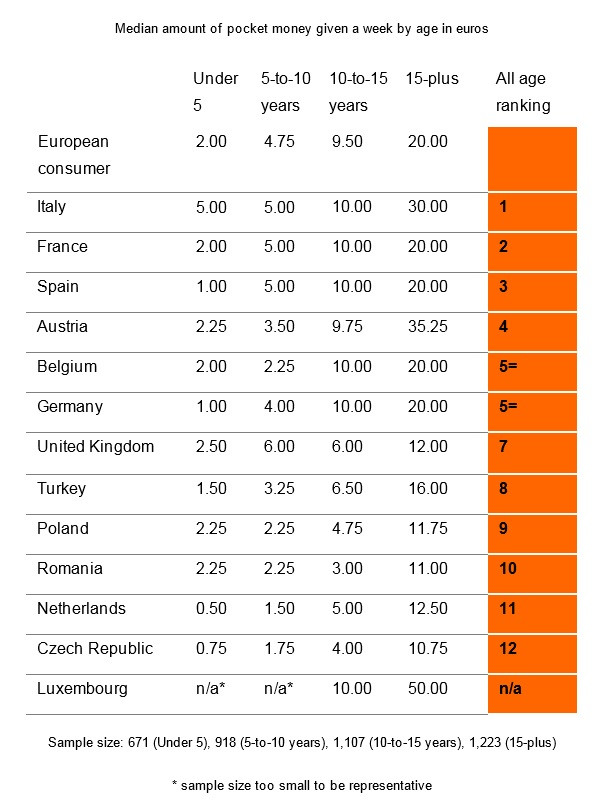ING Bank: Children Getting Pocket Money 'Will Have Less Debt in Adulthood'

ING Bank has revealed that children who receive pocket money are less likely to be in debt in their adulthood.
According to a pan European study of more than 12,000 consumers across Europe, children who are given cash by their parents are more likely to learn to exercise more control over their spending, than those who didn't.

The Dutch lender, which conducted the study, said that children who receive pocket money are less likely to become overdrawn and are more likely to save for retirement.
"Our research suggests a correlation between adults who were given pocket money as a child and their ability to better manage their finances later in life," said Ian Bright, senior economist at ING Group.
"Allowing children some element of financial control may be one way to help them realise the value of money and build basic budgeting skills, which will help prepare them for financial independence when they leave home."
Pocket Money Rankings
Out of the 12,000 surveyed, 55% of people who received pocket money as a child regularly add to their savings, compared to 45% of those who didn't.
According to the survey, 70% of adult respondents said they give their children a small allowance in order for them to feel more confident about them becoming self-sufficient once they leave home.
Some 83% believe it has helped them realise the value of money.
As a result, 79% of consumers across Europe now give their children pocket money with Italian parents are the most generous overall, giving their children (aged 15 plus) as much as €30 in pocket money a week.
However, British parents are the most stingy and give their children less money than France, Germany, Spain and Italy.
© Copyright IBTimes 2025. All rights reserved.






















